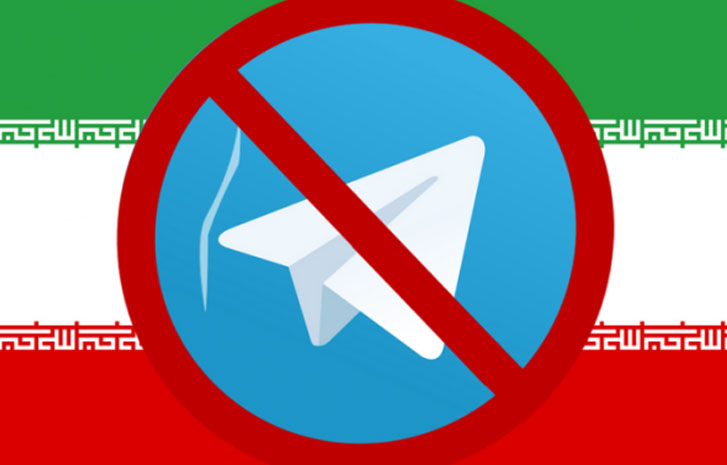
The Iranian government placed a ban on Telegram, the popular messenger app in the country, after it was found by the government that the app was used by opposition groups to spread antigovernment sentiment in the country in January this year. The judiciary of Iran temporarily banned Telegram at the start of the year when there was widespread unrest in dozens of cities in the country. With the ban, Telegram will be just another banned communication platform after Facebook and Twitter, which are also banned in Iran.
The app has been accused of allowing “foreign-based revolutionary groups” to cause “terrorism”. The government has been thinking of taking this action since the start of April after Telegram developed a full-service blockchain ecosystem with a record-setting $1.7 billion ICO. Iran has urged its citizens to use its homegrown messaging app, Soroush, which allegedly contains emojis featuring a veiled woman proposing “Death to America.” It is also monitored by the Iranian government, meaning you can’t spread unrest with it. But it seems quite impossible as almost half of Iran’s population (40 million) use Telegram compared to the Soroush network that currently has 5 million subscribers.
Telegram Banned On Demand Of Security Organizations
The Iranian government in the past even suggested that Telegram and other messaging apps should start operating domestically by transferring their data servers to Iran instead of storing the data in other countries. However, the founder and CEO of Telegram, PavelDurov, refused to meet this demand as it will mean compromising the privacy of the messaging app. Since there has been no positive response from the Russian entrepreneur, the Iranian government decided to ban the messenger app like Russia did.
Russia’s FSB Denied Right To Access Telegram Keys
Durov has urged Russians to resist the ban as he believes that it is compromising the Russian human rights. Russia decided to ban Telegram after its intelligence agency FSB was denied the right to access encryption key of the messenger app.
Apart from the citizens, even local communication mediums including internet providers and phone have been ordered to block Telegram access. If anyone disobeys the order it would be considered a violation and support to opposition related activities and may face prosecution. The supreme leader of Iran, Ayatollah Ali Khamenei and President Hassan Rouhani both stopped using Telegram in the mid of April. In his last message on Telegram, Khamenei asked users to start using Iranian messaging apps like Soroush and Gap. However, Rouhani, a supposed “moderate”, seemed to be against the ban and declared his viewpoint during a meeting with high level officials at the start of April, as the token liberal.




